Kpessa-Whyte: Couldn’t WAEC’ve organised exams for students at home?
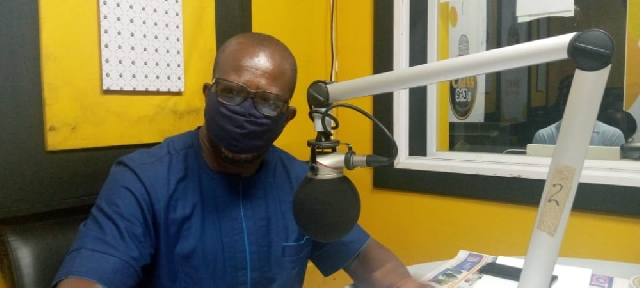 Dr Michael Kpessa-Whyte
Dr Michael Kpessa-Whyte
Dr Michael Kpessa-Whyte, a Research Fellow with the History and Politics Section at the Institute of African Studies (IAS), University of Ghana, Legon, has wondered whether the West African Examination Council (WAEC) could not have innovated in these COVID-19 times and organised final exams for students remotely using technological platforms instead of having the students be physically present to sit the exams.
Within the past few days, nine students of Mpraeso Senior High School in the Kwahu South District of the Eastern Region have been isolated over COVID-19 fears.
The school is awaiting results of tests conducted on the students as they receive medical attention and management.
It follows the confirmation of eight cases at Accra Girls’ Senior High School which threw the student body and parents into pandemonium.
Subsequently, there have been reports of COVID-19 scares in other senior high schools across the country, just about a month after the President directed that they be opened for final-year students to go sit their exams.
A few days ago, a final-year student of KNUST SHS in Kumasi died on campus after bouts of vomiting and stomach issues.
The school authorities, according to the students, neglected their colleague out of fear of contracting COVID-19.
Speaking on Class91.3FM’s Executive Breakfast Show on Thursday, 9 July 2020 about the reopening of senior and junior high schools for final-year students vis-à-vis reports of community spread of the COVID-19 pandemic in SHSs, the former Executive Director of the National Service Secretariat, said the pandemic presents an opportunity for innovation and creativity.
“This issue of getting the kids to the schools, if the government had listened to the warnings, admonitions and the suggestions and the advice of several people who have cautioned against it, we wouldn’t have been where we are”, Dr Kpessa-Whyte told the host Benjamin Akakpo.
“What makes us think that we can only do one solution – we must go to the school at all cost?” he asked.
“Couldn’t we have done things differently?” the lecturer wondered.
“Is this even not an opportunity for WAEC to innovate and reach the kids directly in their homes with the exams? Some schools are doing exams with their kids at home through the various technological platforms”, he said.
In his view, rather than reopening schools, the government and the education authorities could have leveraged the continuous assessments of the students as well as technological platforms to come up with creative solutions to the problem.
“This thing where if you don’t show up physically to write exams is like you are not writing the exam with all the advances that we have in technology right now, is problematic”, Dr Kpessa-Whyte asserted.
“And the idea that the technology is only available in the urban areas; whose responsibility is it to make that it gets to the rural areas? In some countries, internet service is a public service”, he added.
According to him, the “government doesn’t love our kids more than the parents love them”. “The teachers can only do so much as far as taking care of the kids is concerned. We have offloaded our responsibilities to the teachers, who, by the way, are not sufficiently motivated and paid, and expect that they will have the energy, the love, and everything that it takes to actually take care of our kids, by way of teaching and also policing them around as far as the protocols are concerned”.
“I think we need to be realistic”, he pointed out, explaining: “And being realistic means that pandemics, catastrophic as they are, also provide opportunity for innovation and creativity”.
“And I have said that, one of the remarkable things that has taken place in the midst of this pandemic in this country, is what the tertiary institutions have done: as soon as the country was locked down, they got the students to go home but school continued – we continued to teach, we organised exams, our students have written the exams; these students come from cities, urban areas, rural areas and everywhere else across the country”, he noted.
He said innovative measures were put in place to ensure no one was left out.
“Those who could not participate online, the universities made special arrangements for them, to actually not lose out of the system”, stressing: “My point is that government is expected to be in the business of solutions”.
“Who are the minds in this government who are sitting around the table and are unpacking various alternative ways that we can make sure that the disruption that is being caused, does not become as catastrophic as the pandemic itself?” he asked.
“So, it is very simple: there is nothing that the human mind can think of that the human hand do. If we decide that we will not truncate the education of the kids, but we will stop going to organised-learning, in terms of school structures, what is the alternative?”
“Already, some private schools and basic schools in this country, even for kids as young as five years old, are running online programmes. We live in this country, a significant number of our people engage in distance-learning and they use the technological platforms. Is it about time that we started thinking beyond our known notions of education and schooling?”
“We have equated schooling to education in this country and I am saying that it is about time we put education where it belongs by making sure that we put minds that can generate ideas, alternative ideas, that will allow us to grow our future generation, by way of learning without necessarily compromising the protocols that we have put in place”, he said.
Source: Classfmonline.com
Trending News

Ghana's Supreme Court clears way for dual citizens to hold key public positions
20:28
Struggle for next NDC leader'll make Mahama gov't lose focus if he wins 2024 polls - Afenyo-Markin says Bawumia 'better' option
14:16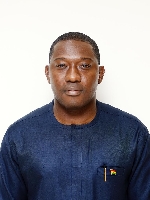
Power challenges over in next few days: Herbert Krapa
08:13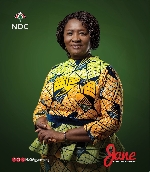
Naana Jane embodies authority and authenticity - Joyce Bawah insists
12:58
Train crash man jailed six months
13:36
Bawumia visits Vatican to strengthen diplomatic ties
17:55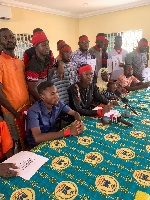
Jobless teachers threaten street demonstrations
11:57
Tesla recalls thousands of Cybertrucks over jammed accelerator issue
13:16
'If you owe even a pesewa, we'll disconnect you' – Angry ECG workers warn Ashanti regional minister
13:43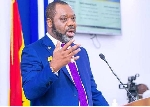
Dumsor: Amoasi's push for Napo exit founded on ignorance – Minister's spokesperson
11:54



